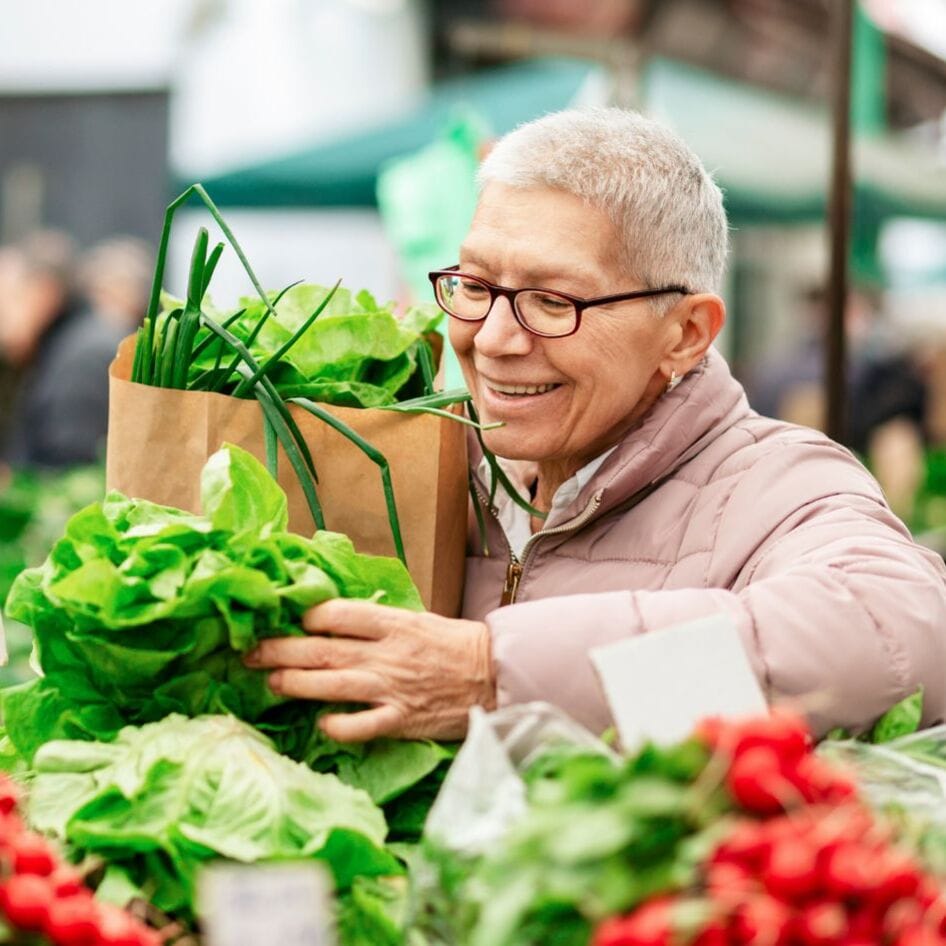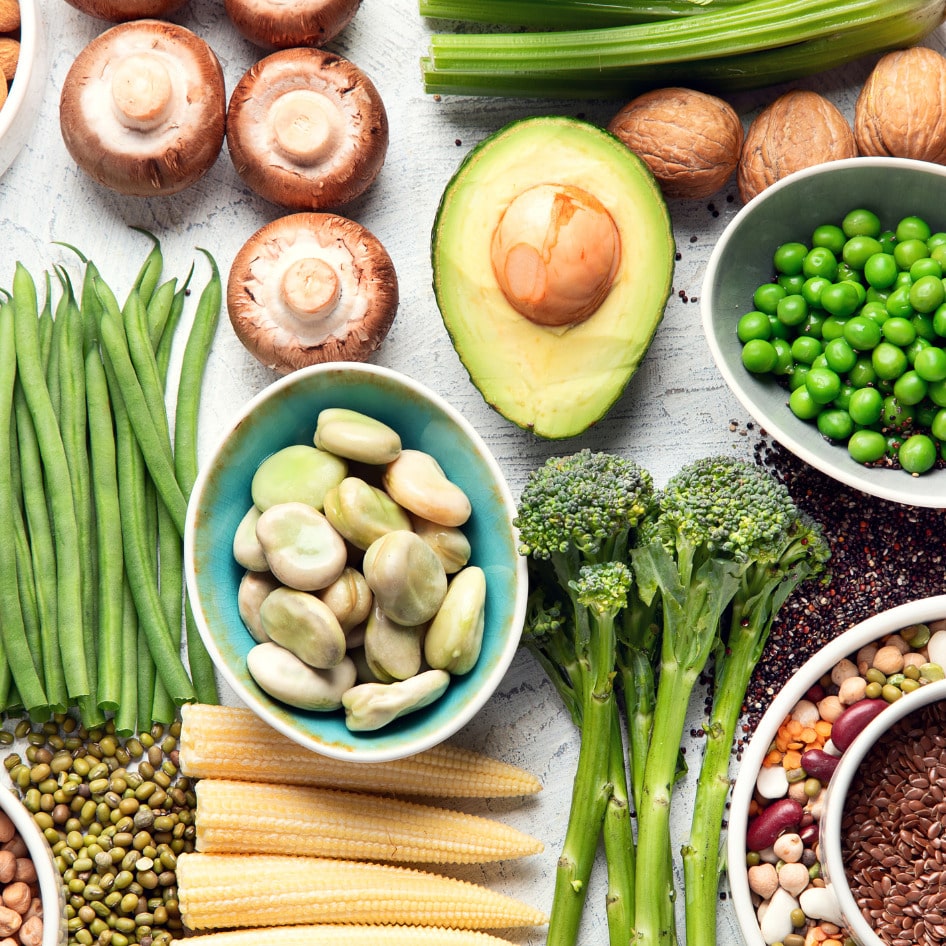Fresh produce can be a luxury for some. That’s why Austin, TX-based distillery Tito’s Handmade Vodka built a 14-acre fruit and vegetable farm to make fresh food available to its employees. Called Fourteen Acres Farm, the farm is cultivated by a team of seven farmers and produces over 25 types of fruits and vegetables. Each week, employees have the opportunity to take home fresh produce at no cost.
The brand created the farm to make fresh food the easy choice for its employees and they are dedicated to cultivating that goal every day. Over the years, Tito’s farm has grown from salvaged pieces and spare parts to 14 acres of raised beds, hoop houses, greenhouses, captured rainwater, and more.
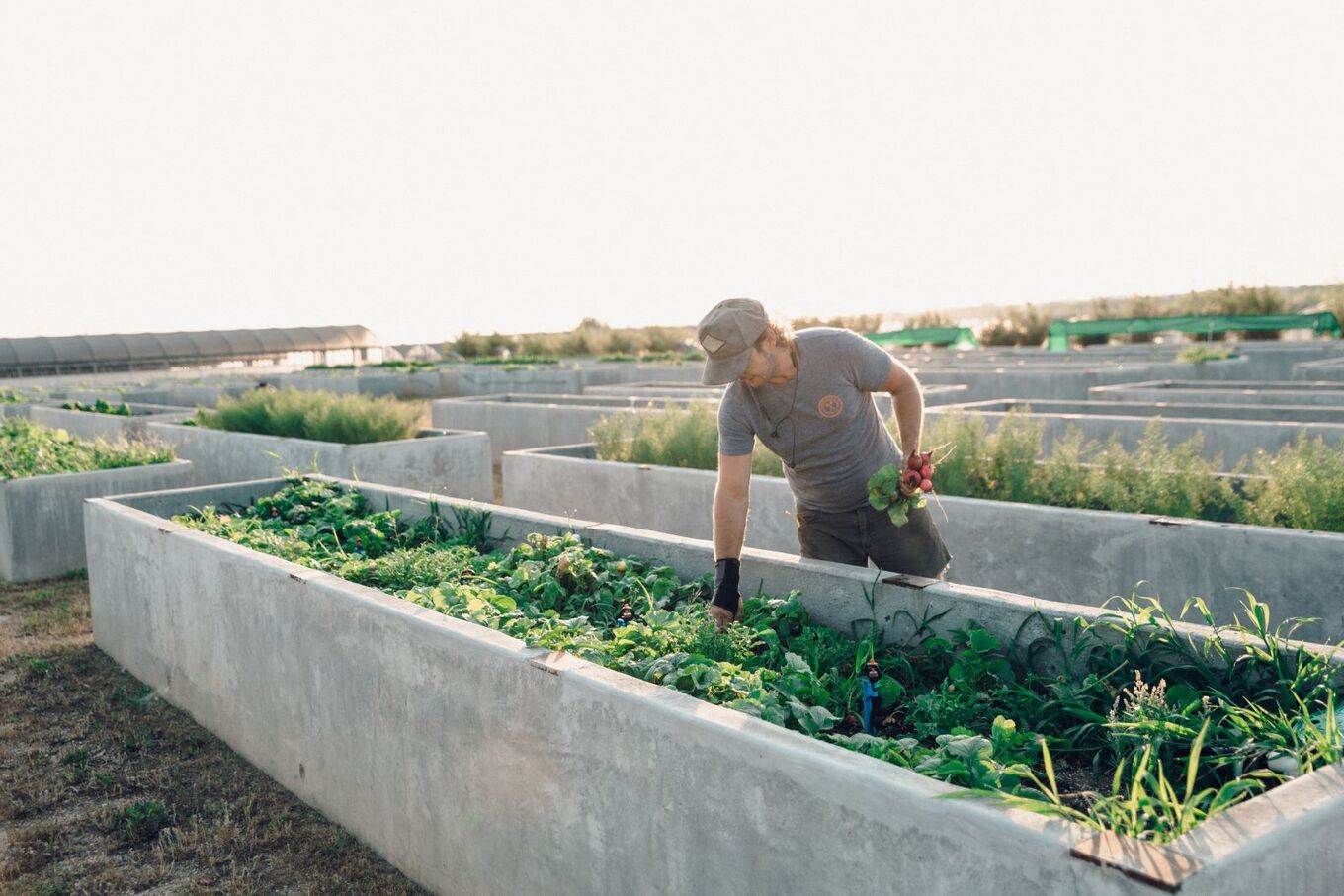 Fourteen Acres Farm
Fourteen Acres Farm
As the vegetable farm has expanded, so has its connection to the employees through a weekly farmers market, giving them the opportunity to select the food they’re most interested in. From lunch cooked onsite using produce from the farm, to bags of produce stocked for employees to take home, down at the distillery, Amy Lukken, Chief Joyologist at Tito’s Handmade Vodka, says inspiration to eat well is everywhere you turn.
“The idea to build the Fourteen Acres Farm was sparked by our commitment to support the well-being of our team members. Realizing that there aren’t many options for fresh food near our distillery, we saw an opportunity to provide them with easy access to fresh, healthy produce,” Lukken tells VegNews.
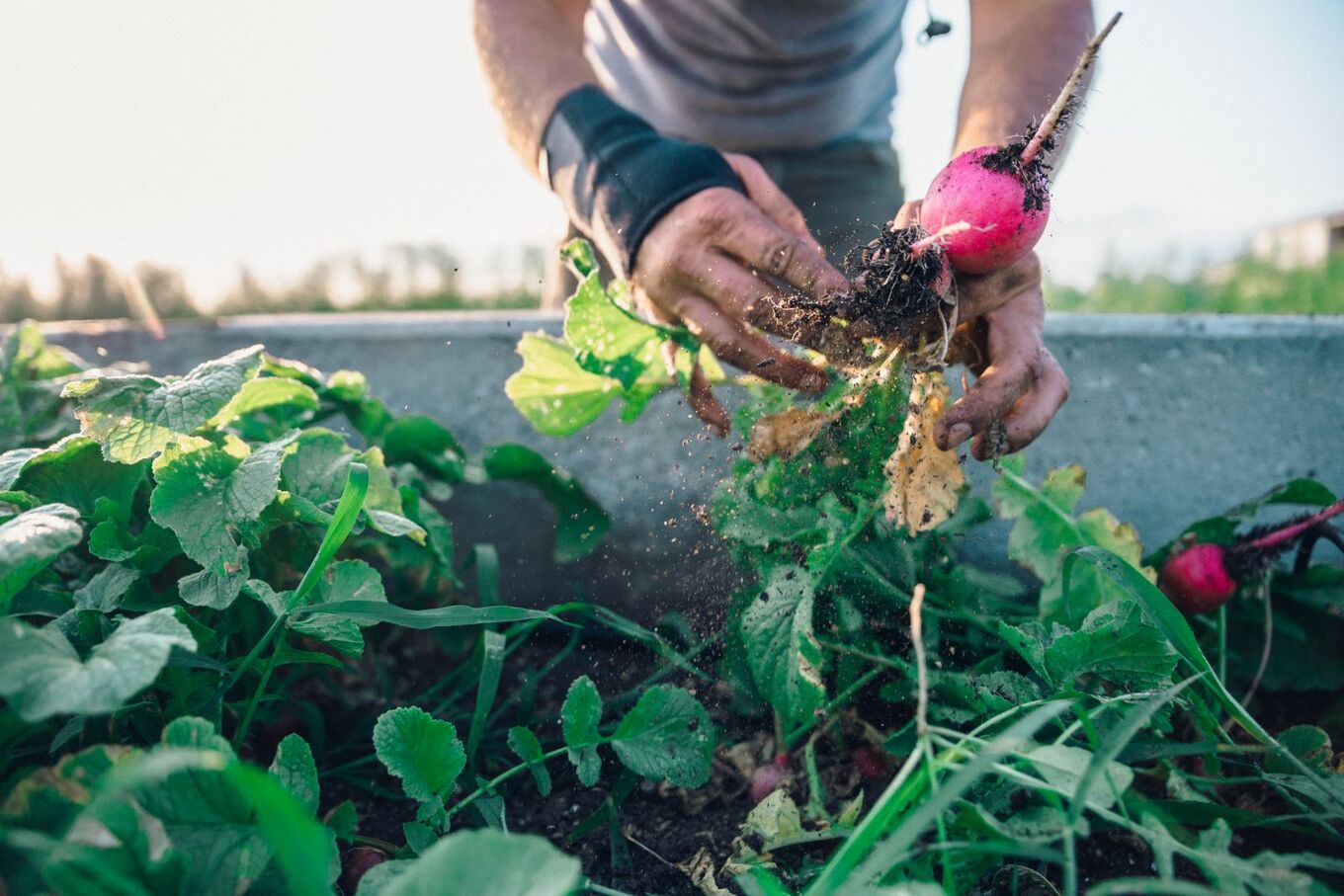 Fourteen Acres Farm
Fourteen Acres Farm
The farmers’ market allows employees to select the produce they want, as well as connect with farmers to learn recipes, cooking tips and tricks, and more about the food that is grown. In fact, not only are bags filled with seasonal produce, but each weekly pickup is paired with an informational card explaining the best ways to prepare the crops.
“This personalized approach allows them to pick the produce that resonates with their specific tastes and gives them the opportunity to learn how the food is grown directly from our farmers, as well as tips and tricks for how to prepare, cook, and store their produce,” Lukken says.
Expanding to a community farm program
The farm was also the inspiration for the Love, Tito’s Block to Block community garden and farm program. “After seeing the success of the Fourteen Acres Farm in our own backyard, we were inspired to bring the opportunity for increased access to fresh, healthy food to our communities across the country,” Lukken says.
“This led us to launch the Love, Tito’s Block to Block community garden and farm program, which seeks to increase access to fresh and healthy food through collaborations with local nonprofits, as well as reconnect communities—one block at a time.”
Now in its fifth year, the program works to increase access to fresh produce for communities across the country and has supported over 100 growing spaces nationwide. This year, Tito’s Block to Block program is launching across more than 35 cities.
“[We are doing this] not only by providing funding to assist with the creation, enhancement, and revitalization of community growing spaces but by offering on-the-ground work from local Tito’s team members who volunteer at each project to get their hands dirty alongside nonprofits and community members,” Lukken says.
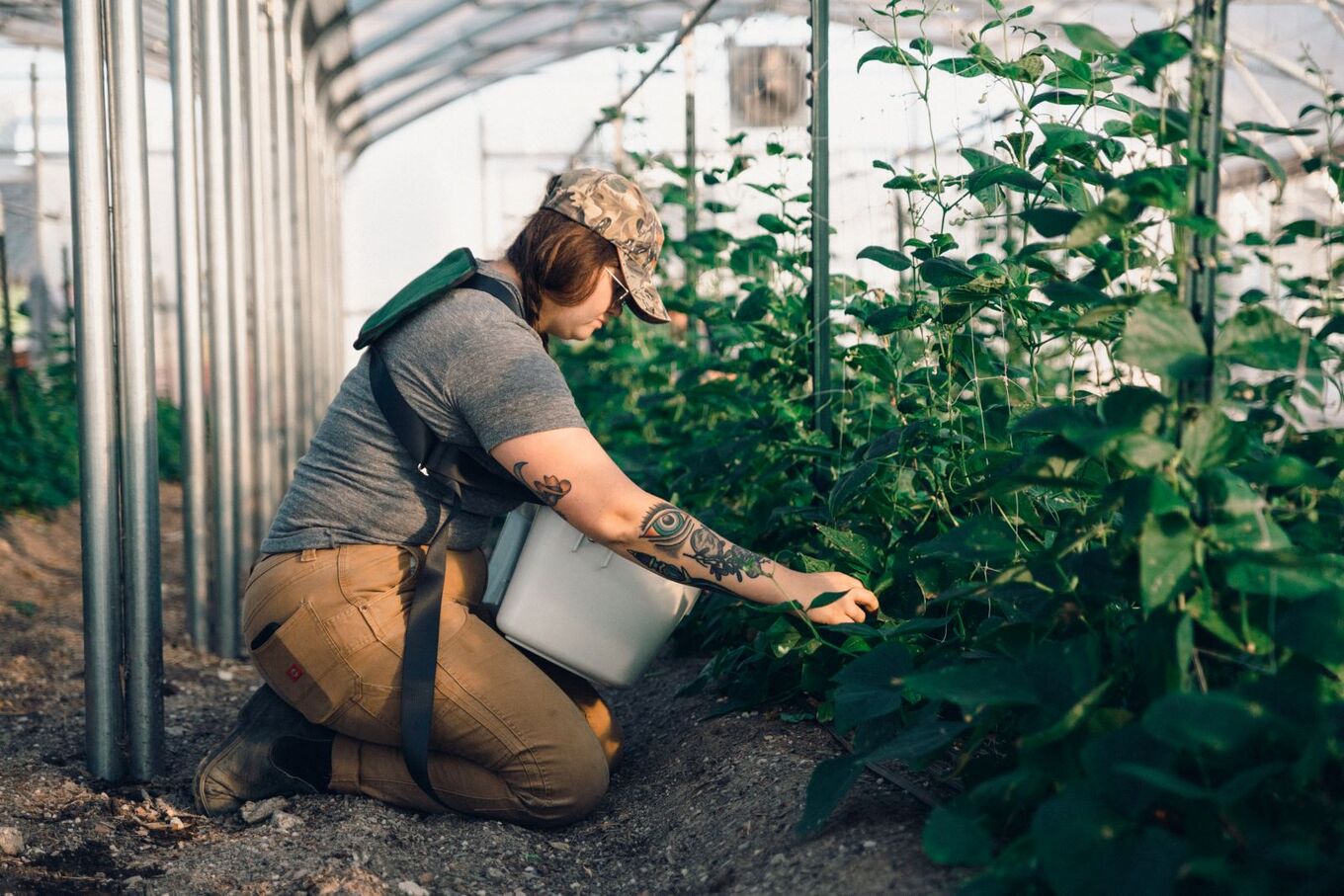 Fourteen Acres Farm
Fourteen Acres Farm
Ultimately, Tito’s believes in providing fresh, nourishing plant-based food to its employees and communities. “At Tito’s, we are deeply committed to the well-being of our employees and the communities we serve,” Lukken says.
“Giving back has been part of our culture since the very beginning and we’re thrilled to be able to continue to grow our support for our employees and communities through our Fourteen Acres Farm and Block to Block program.”
Transitioning animal agriculture
As interest grows in growing plants instead of animals for food, more companies and nonprofits are investing their energy into new and unique initiatives to help their communities. In 2022, activist Miyoko Schinner and animal welfare organizations Mercy For Animals and Animal Outlook combined efforts to launch a unique toolkit for farmers interested in transitioning from animal agriculture to plant-focused farming.
The Farmer Toolkit aims to help support and empower farmers by providing them with information they need for a successful transition, including how-to guides for growing crops, state-specific resources, guidance for marketing crops, tips for applying for grants and loans, webinars, and more.
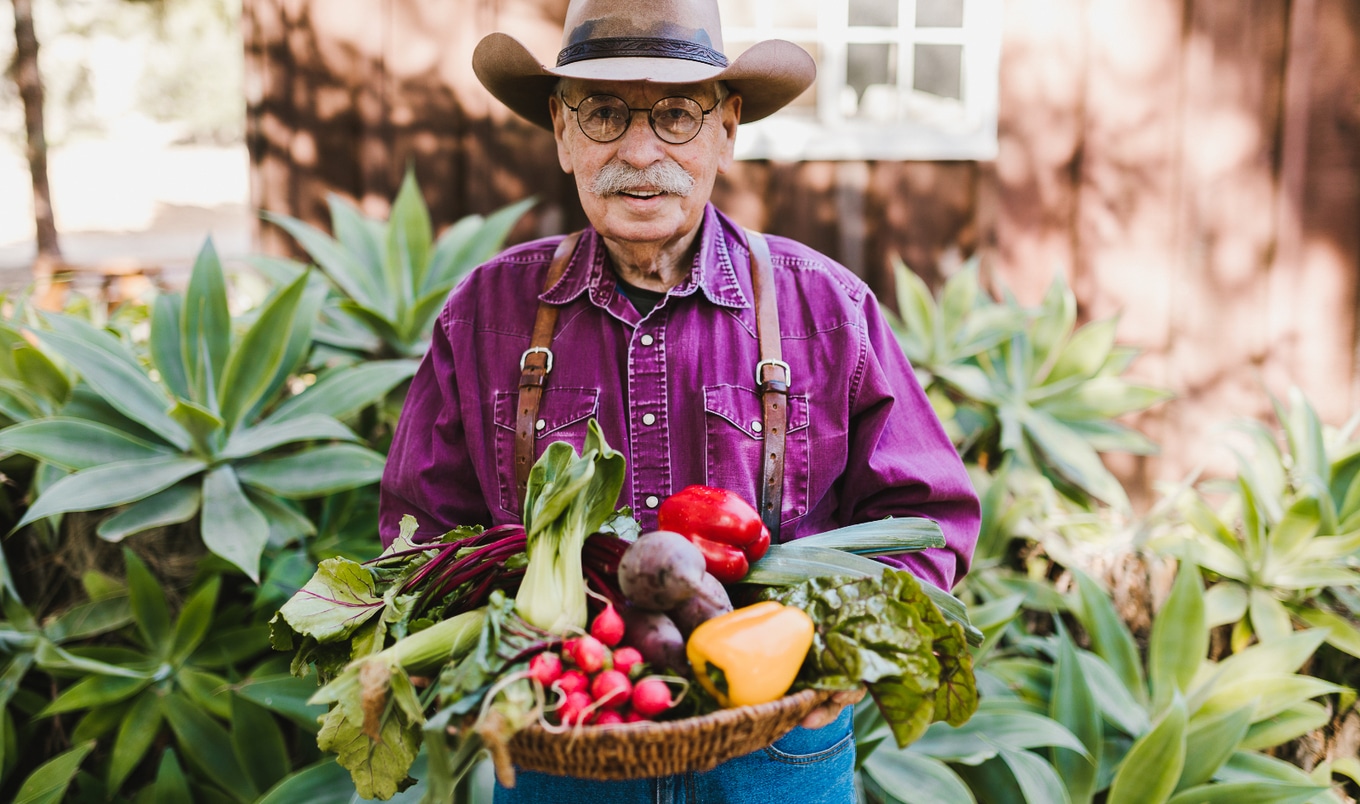 Canva
Canva
The toolkit is an extension of already existing programs, including Mercy For Animals’ Transfarmation project, which offers funding and certification for farmers who want out of the exploitative animal farming industry and into the booming plant-based sector. It recognizes that farmers are an integral part of creating a food system and has already helped farmers successfully transition their operations to plant farms growing hemp and mushrooms.
“We aim to help farmers transition to growing hemp, mushrooms, hydroponic lettuce, and other crops—and even to producing solar and wind energy. We will bring together investors, engineers, farmers, business folks, policymakers, and advocates to design replicable models that will boost rural economies and build a more compassionate farming system,” MFA President Leah Garcés said.
For the latest vegan news, read:
JUMP TO ... Latest News | Recipes | Guides | Health | Subscribe





